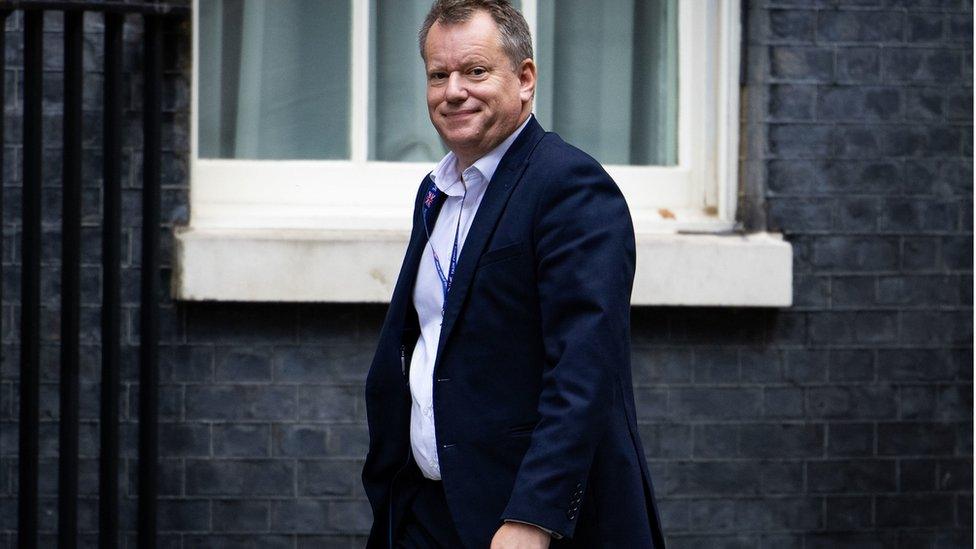Brexit: Article 16 threats are not helpful, says Mairead McGuinness
- Published
"I think threats are not helpful"
Threats by the UK to trigger Article 16 of the Northern Ireland Protocol "are not helpful", Irish EU Commissioner Mairead McGuinness has said.
The UK's Brexit Minister Lord Frost said it would be a "significant mistake" to think the UK would not trigger Article 16.
Ms McGuinness said the agreement would "not be renegotiated".
Article 16 is the part of the Northern Ireland Protocol which allows parts of the deal to be temporarily set aside.
It can be done on the condition that they are causing "serious economic, societal or environmental difficulties that are liable to persist, or to diversion of trade".
The Northern Ireland Protocol is in place to prevent a hard border between Northern Ireland and the Republic of Ireland after Brexit, and does this by keeping Northern Ireland in the EU's single market for goods.
Unionists have said the protocol damages trade with other parts of the UK by creating a border in the Irish Sea.
'Total access'
Ms McGuinness told the BBC's Andrew Marr Show there was a need to "solve problems for people in Northern Ireland".
"We want the protocol to achieve its full ambition for Northern Ireland," she said.
"Total access, of course, to the UK market, but absolute free access to the European Union, which is an enormous market."

Unionists have held protests against the Northern Ireland Protocol
Ms McGuinness said that during Vice-President of the European Commission Maroš Šefčovič's visit to Northern Ireland, he "did not get the message... that they wanted the protocol to be scrapped or set aside, but people want solutions on the ground".
Speaking on the BBC's Sunday Politics programme, Traditional Unionist Voice (TUV) leader Jim Allister said triggering Article 16 is "but a temporary fix, it's not an end of the matter".
He said the Northern Ireland Protocol undermines the UK's constitutional integrity and said that any deal should not affect British sovereignty:
"At the end of it, are we still left in a foreign single market for goods, subject to a foreign customs code, overseen by a foreign laws that we don't make and can't change, and adjudicated upon by a foreign court?," he asked.
"If changes do not pass that test, then they go nowhere because they do not resolve the sovereignty issue."
Related topics
- Published31 August 2021

- Published14 September 2021
